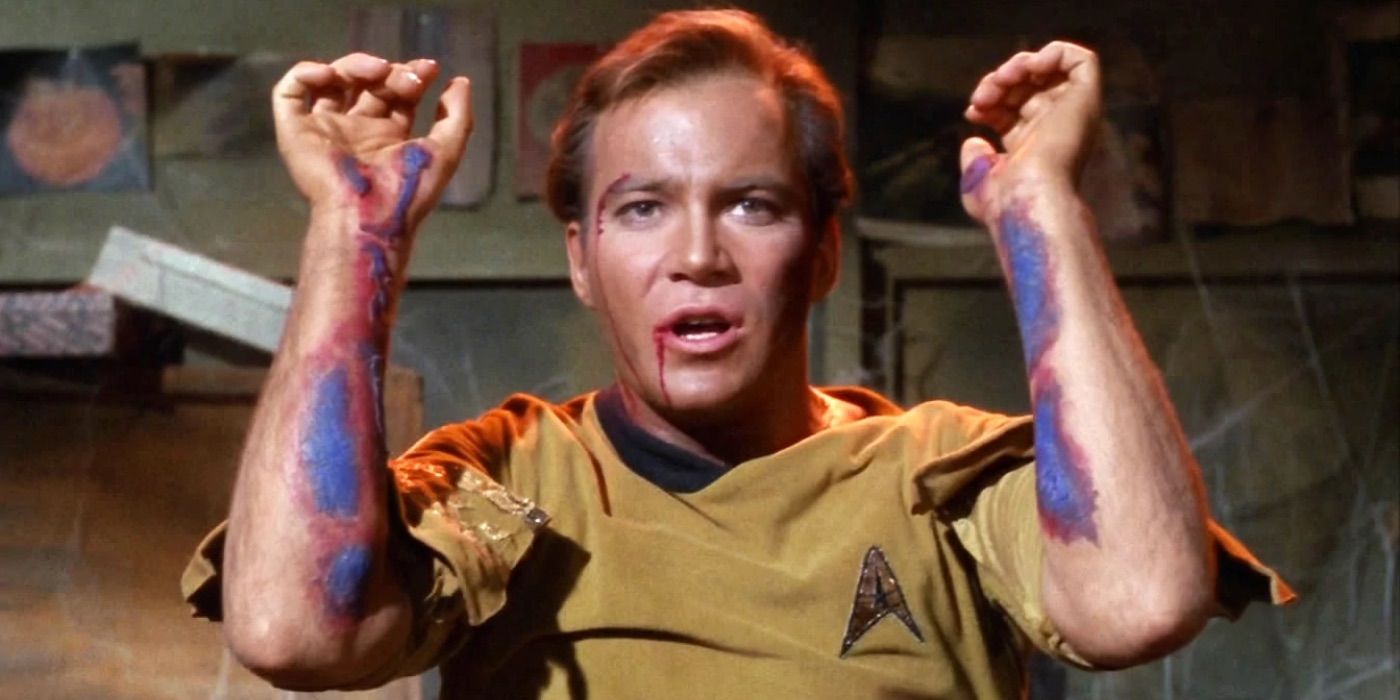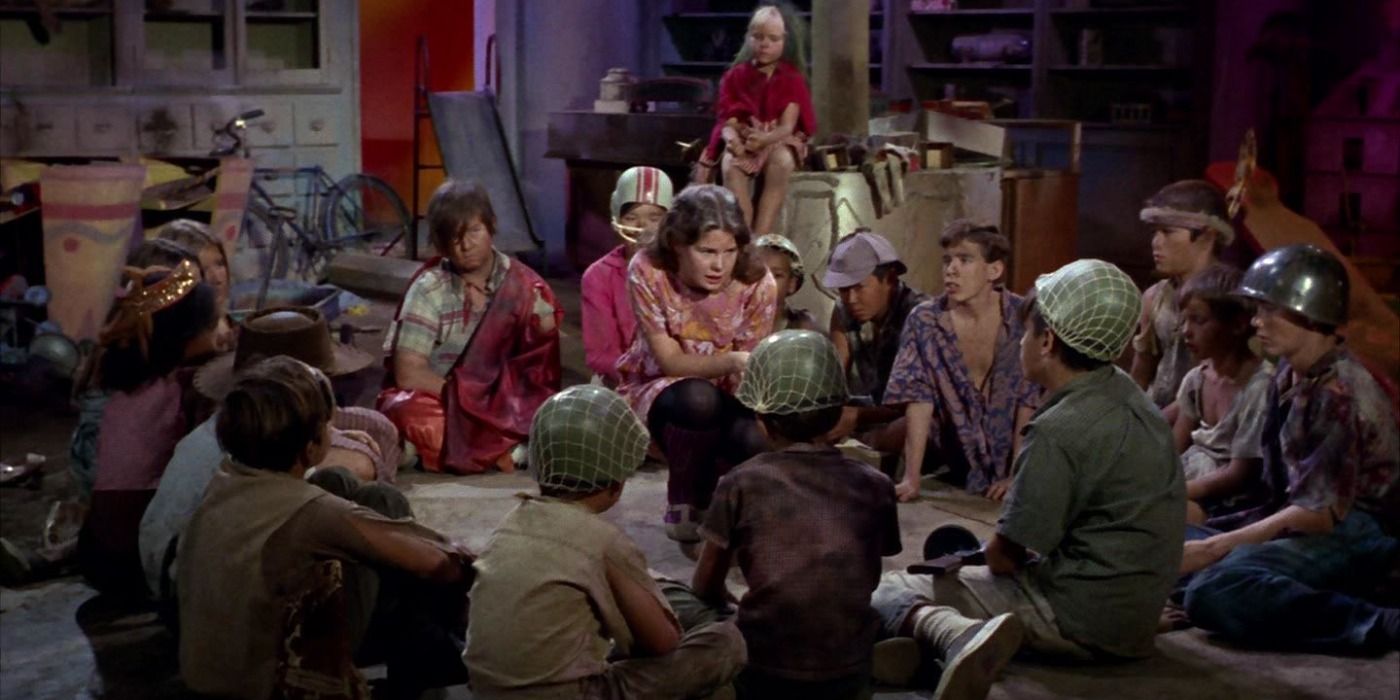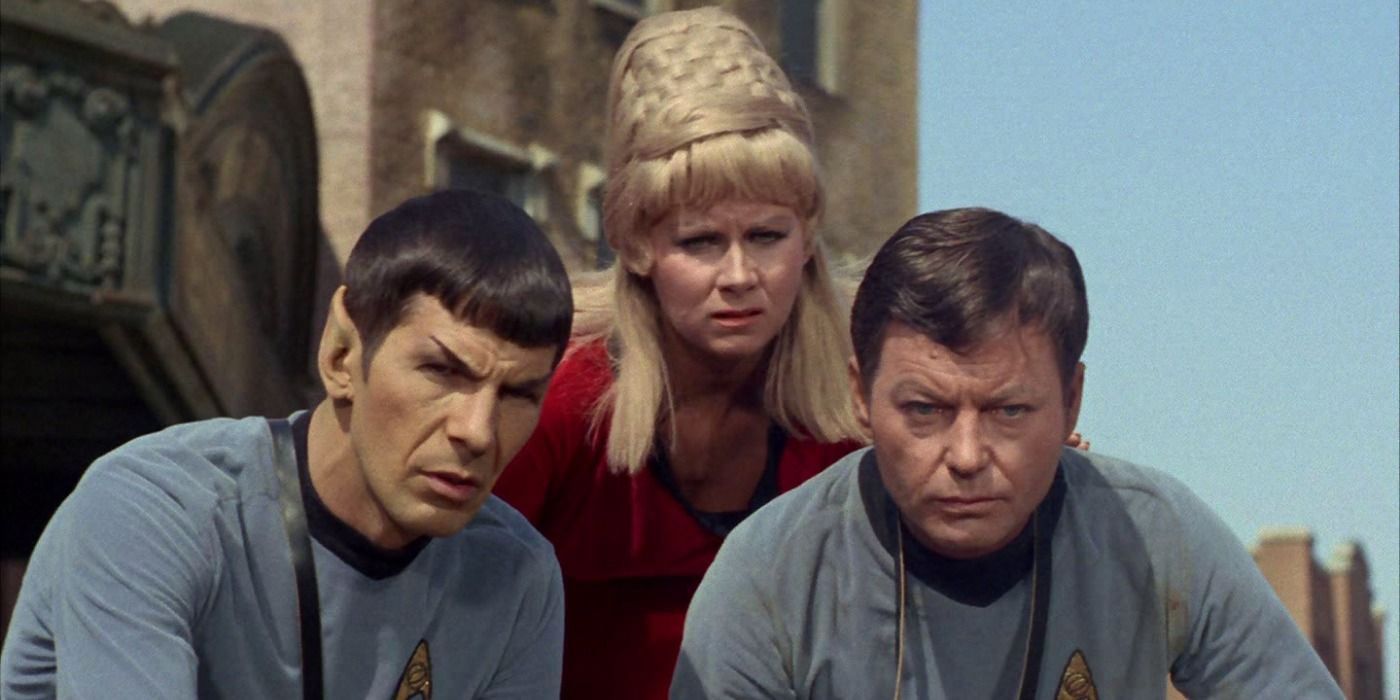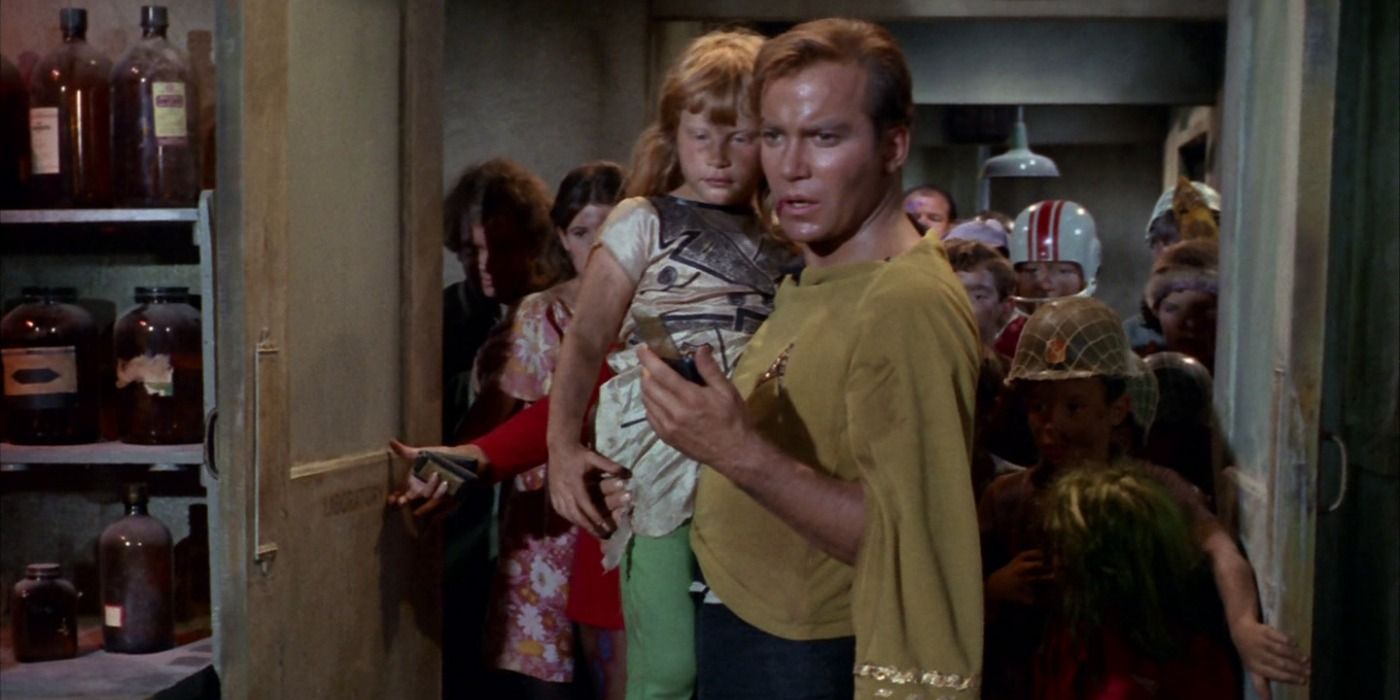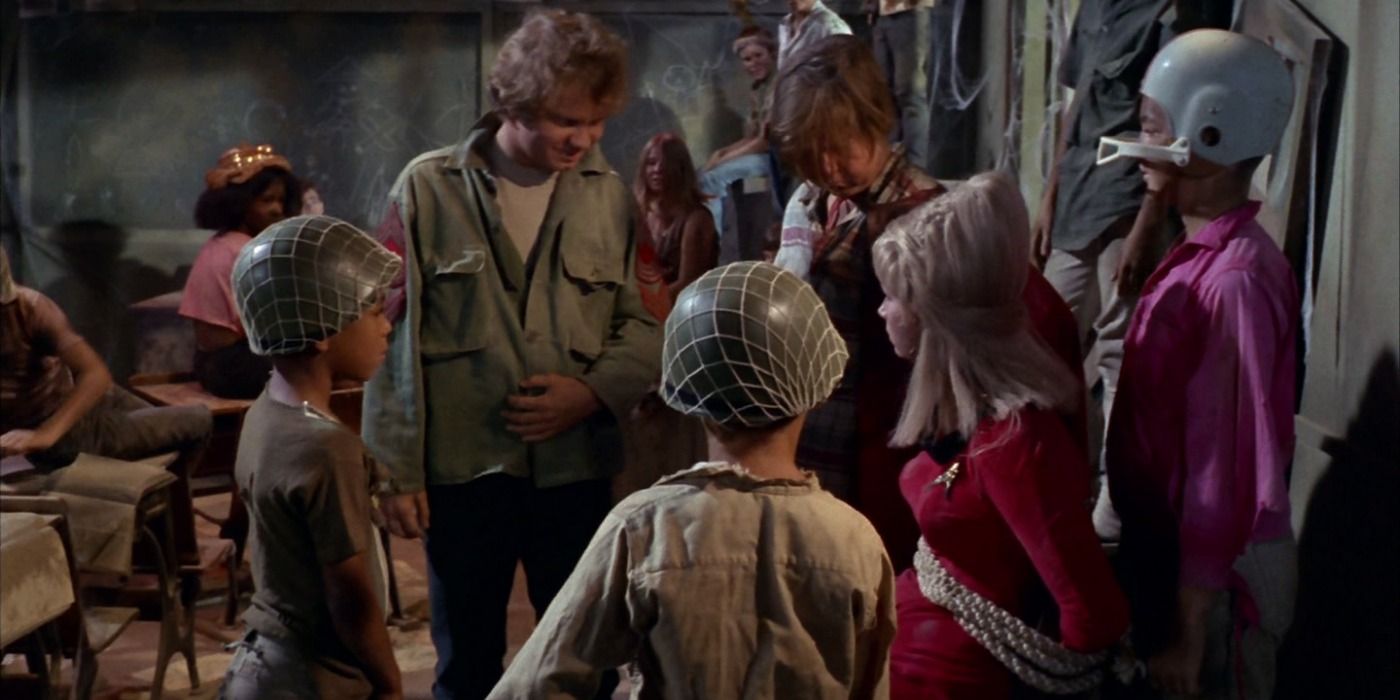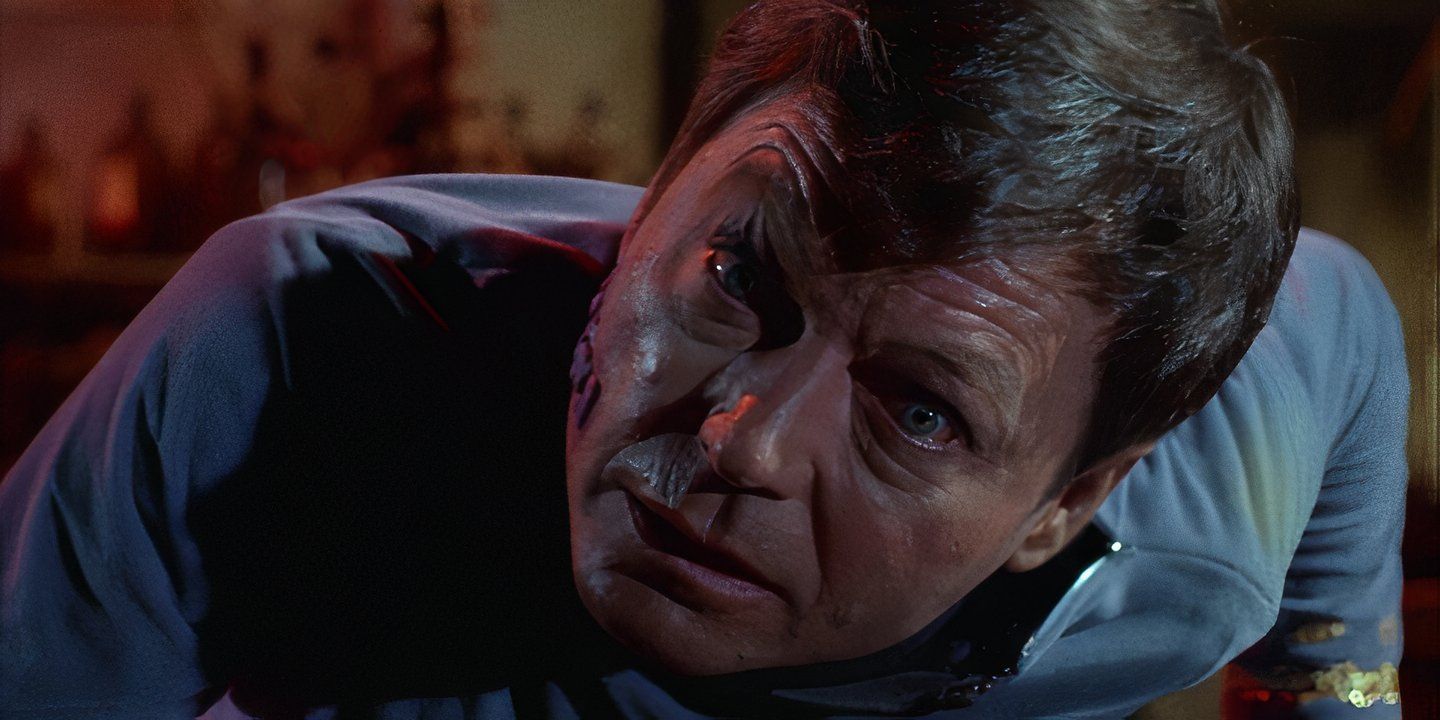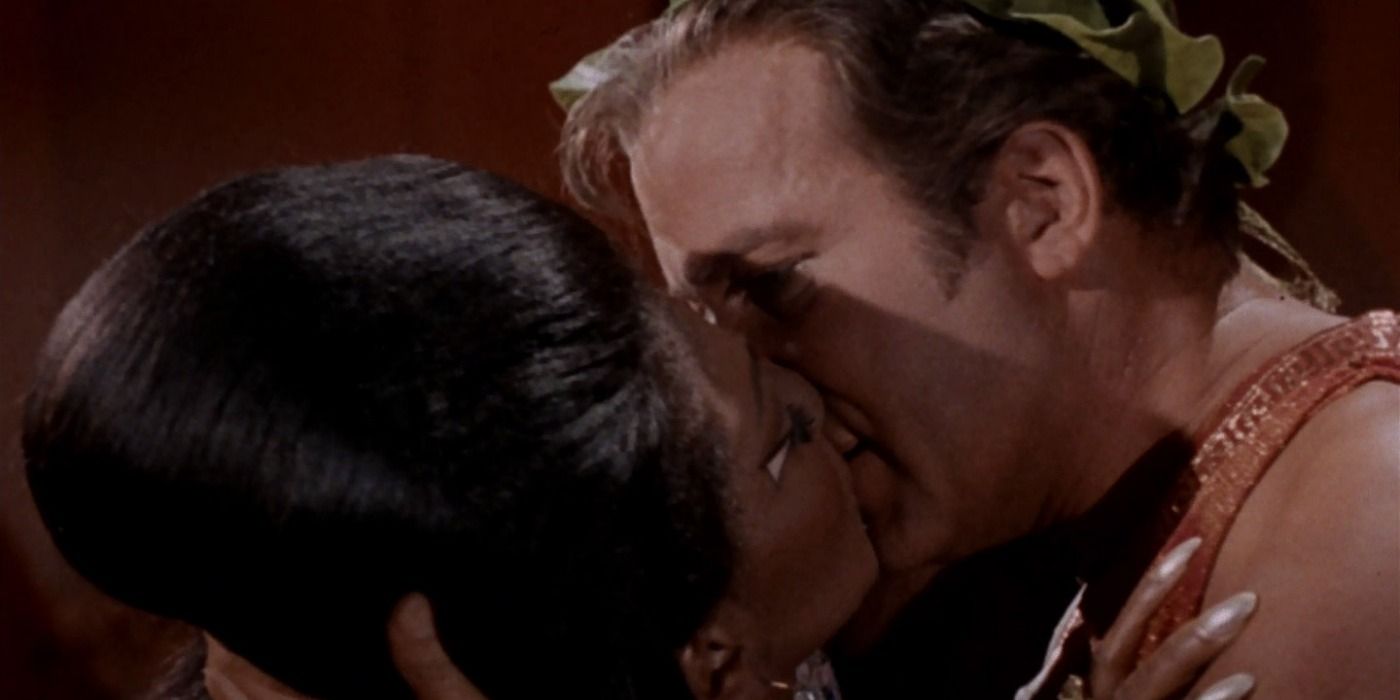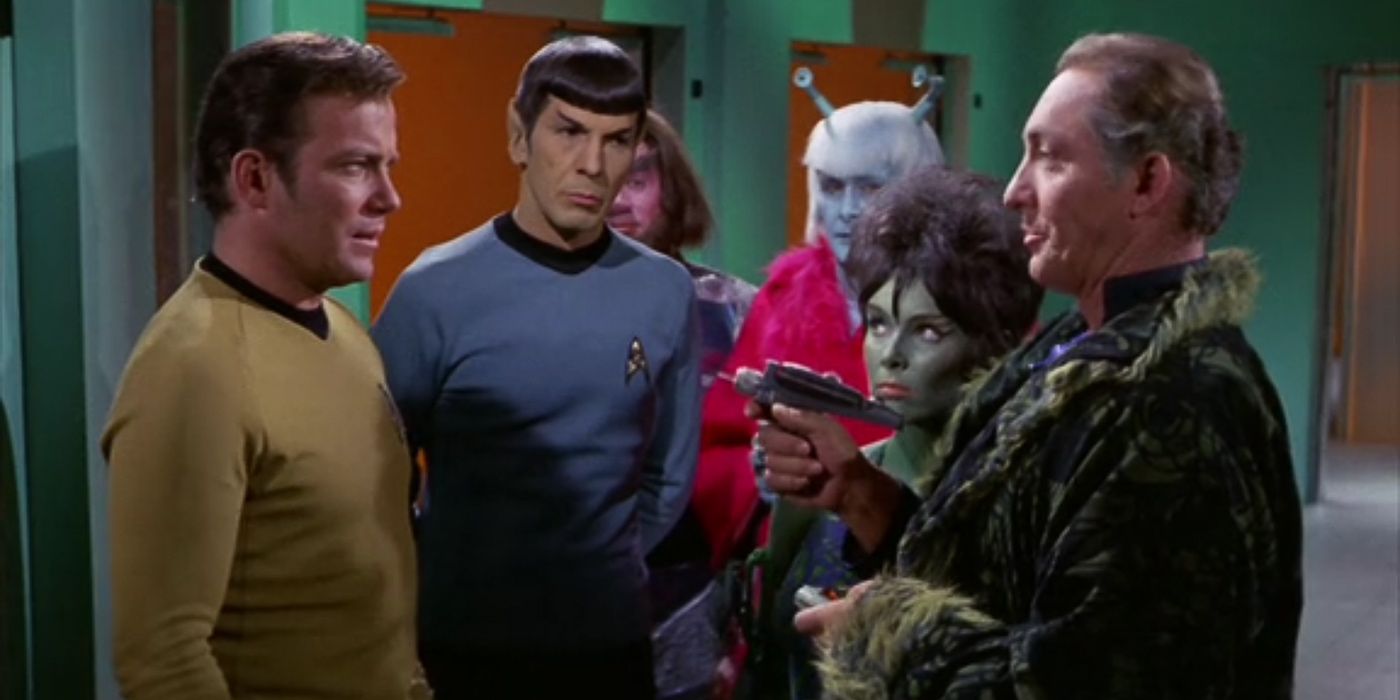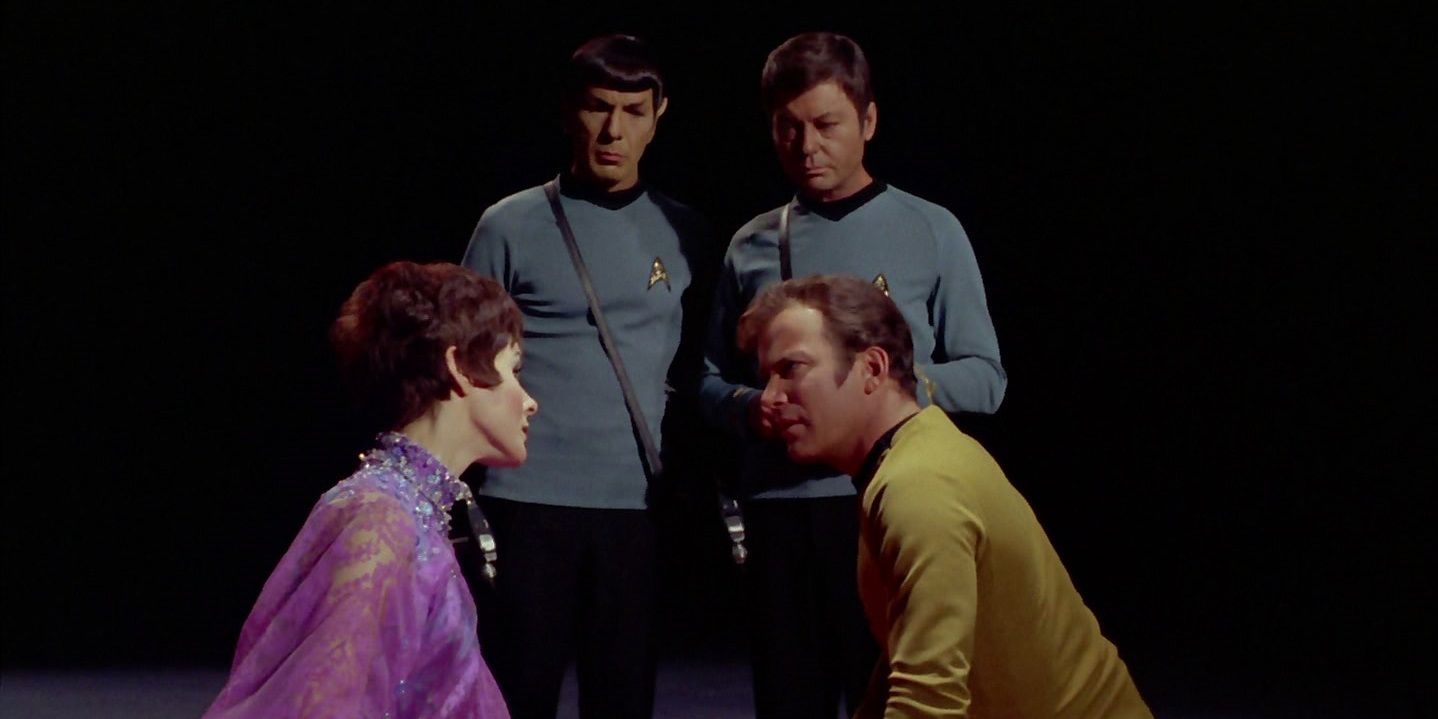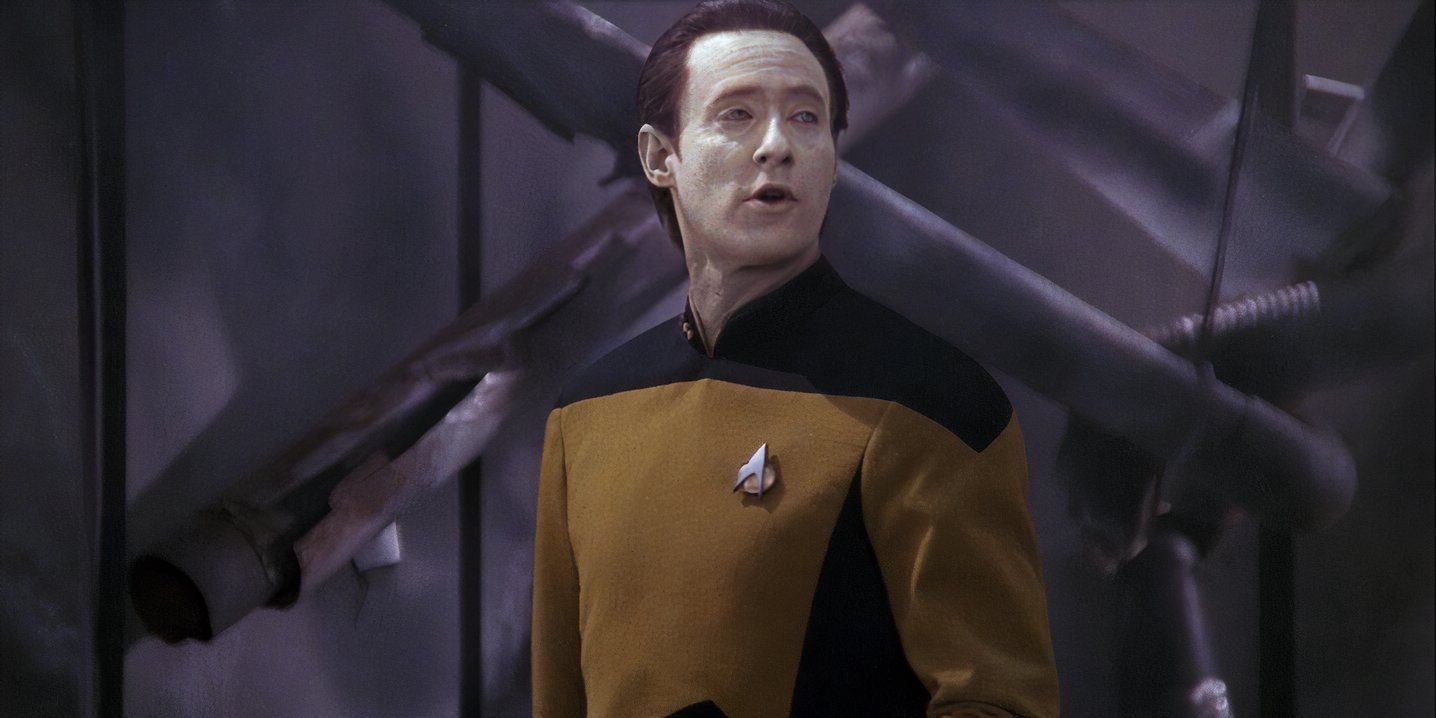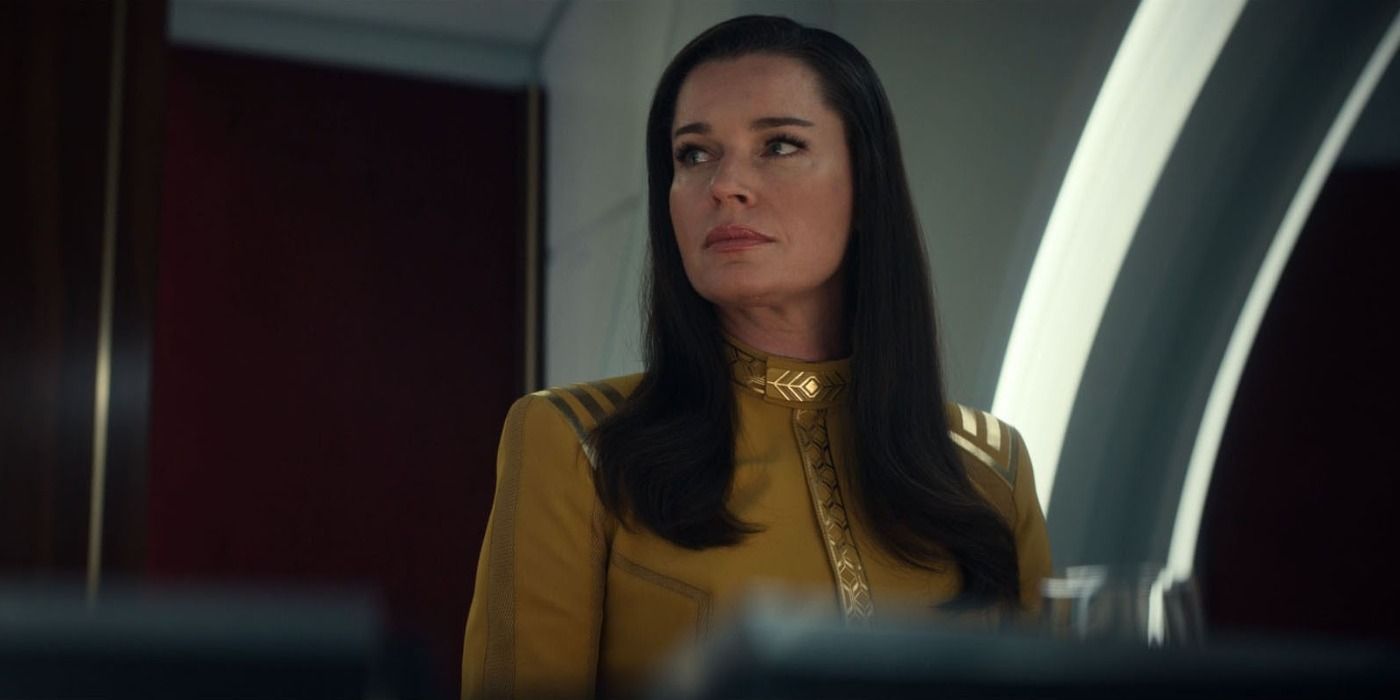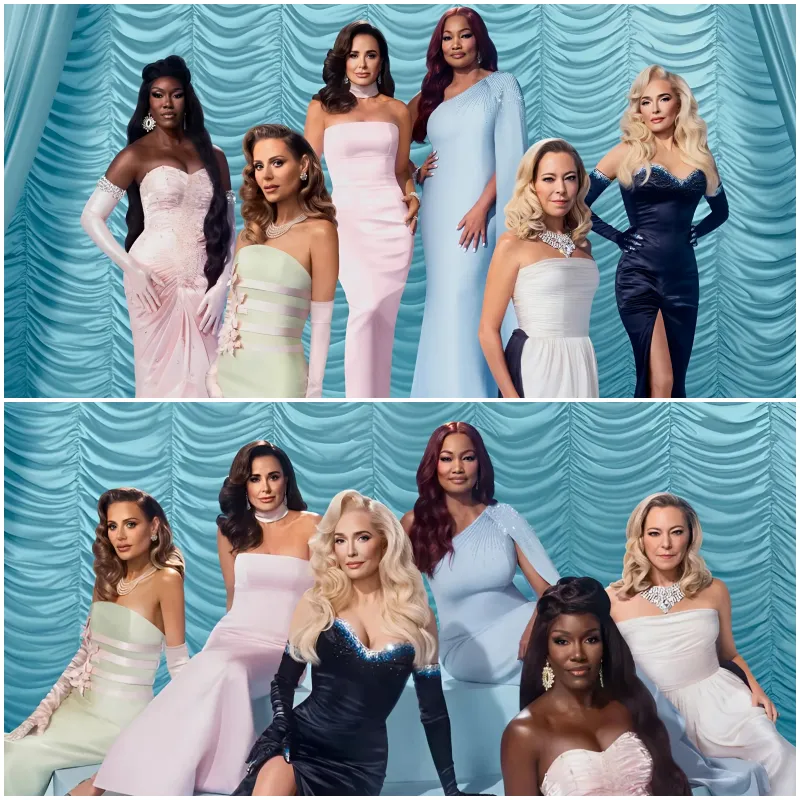When considering the standards of modern television, Star Trek: The Original Series can seem almost quaint by comparison. Captain James T. Kirk (William Shatner) and Dr. Leonard "Bones" McCoy's (DeForest Kelley) acting is charmingly over the top, evoking standards of theatrical performances rather than the intimacy of modern high-definition TV. The sets and special effects are charming, if a little quaint. Indeed, the teaser trailer for Star Trek: Strange New Worlds season 3 includes a modern Star Trek cast on a holodeck programmed to look like 1960s Star Trek.
From the perspective of modern audiences, it seems almost inconceivable that anything in Star Trek: The Original Series could be seen as obscene or transgressive. Nevertheless, TOS was a radical television show that broke the mold for storytelling. Gene Roddenberry's vision of a post-scarcity egalitarian future was, and remains, as challenging and inspiring in the 1960s as any show in the streaming era. As such, it is a little less surprising that four episodes of Star Trek: The Original Series were banned in the United Kingdom.
The BBC Banned Star Trek: The Original Series' "Miri"
The Deadly Pathogen And Antagonistic Children Went Off The Air For 20 Years
"Miri" was the first episode of Star Trek: The Original Series that the BBC banned from airing in the United Kingdom, but it was not the last. In "Miri", Captain Kirk leads an away party to the surface of a seemingly abandoned planet in response to a distress call. Once there, they discover that the former inhabitants of the planet had, in the search for a cure to aging, created a horrible disease that slowed the development of children and drove adults into a violent rage.
Why "Miri" Might've Been Banned In The UK
It Was Too "Unpleasant"
The primary reason "Miri" was not included in Star Trek: The Original Series reruns for 20 years was that, when the episode initially aired, it garnered a massive slew of complaints. As a result, "Miri" and three other episodes of TOS were banned in the UK. However, the BBC has never made public what exactly was included in those complaints, nor have they revealed the actual number of complaints they received. When UK fans wrote in to complain about the ban throughout the 70s and 80s, they received the same stock reply:
There are no plans to screen the four episodes because we feel that they deal most unpleasantly with the already unpleasant subjects of madness, torture, sadism and disease. You will appreciate that account must be taken that out of Star Trek's large and enthusiastic following, many are juveniles who would watch the programme no matter what time of day the series is put into the programme schedules.
What this reply makes clear is the different attitude towards Star Trek: The Original Series among US and UK audiences. In the United States, Star Trek was and remains a franchise aimed at all ages, but especially older children and adults. In the United Kingdom in the 1970s, however, Star Trek was treated primarily as a children's TV show, and the UK had strict standards about what is appropriate for children's TV. In other words, "Miri" was banned because it was deemed too violent and "unpleasant" for young audiences.
The UK Banned Other Star Trek Episodes Too
Some Were Too Graphic, Some Were Too Political
Miri" was not the only episode of Star Trek to be banned in the UK. During the 70s and 80s, three other episodes were banned: "Plato's Stepchildren," "The Empath," and "Whom Gods Destroy." In all four cases, the BBC considered the material of the episodes to be too graphic for child Star Trek fans. However, it is worth noting that "Plato's Stepchildren" is famous for having one of the first televised interracial kisses, between Captain Kirk and Lieutenant Nyota Uhura (Nichelle Nichols), so the banning of "Plato's Stepchildren" in particular caused special outcry among UK viewers.
And TOS isn’t the only Star Trek series to have episodes banned in the UK. "Conspiracy," from Star Trek: The Next Generation, had sections cut or banned in the United Kingdom, due to an unusually graphic phaser blast. The later TNG episode, "The High Ground," was not shown in the UK when it was first released in 1990 because of a line from Lt. Commander Data (Brent Spiner) referencing "the Irish Unification of 2024." The episode was eventually shown, with the line cut out, in 1992, but it was not shown unedited on the BBC until an after-midnight rerun in 2007.
Star Trek has always pushed the limits of acceptable television
Part of what makes Star Trek such an amazing franchise is its ongoing commitment to imagining a better future. In Star Trek, contemporary problems of bigotry and inequality are solved, and the characters are explicitly critical of them. Whether it is Captain Benjamin Sisko (Avery Brooks) pointing out that sanitized versions of the past are lies in "Badda-Bing, Badda-Bang," or the allegory for LGBTQ issues in Star Trek: Strange New Worlds', "Ad Astra Per Aspera," Star Trek has always pushed the limits of acceptable television. Star Trek: The Original Series was the start of that grand tradition.
